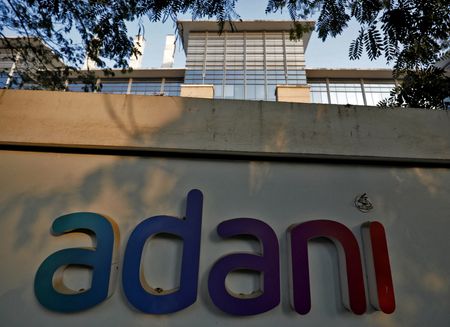By Arsheeya Bajwa and Deborah Mary Sophia
MUMBAI (Reuters) -Nvidia will supply artificial intelligence processors to Indian companies such as Mukesh Ambani’s Reliance Industries, the chip giant said on Thursday, as it deepens partnerships to exploit a growing market.
The U.S. company will supply its Blackwell AI processors for a one-gigawatt data centre Reliance is building in the western state of Gujarat, Chief Executive Jensen Huang and Ambani told an AI summit in the business capital of Mumbai.
Nvidia said it also plans to supply tens of thousands of its Hopper AI chips to build large-scale data centres, in an expansion led by firms such as data centre provider Yotta Data Services and Tata Communications.
“In the future, India is going to be the country that will export AI,” Huang said, by contrast with its role in software exports. “You have the fundamental ingredients – AI, data and AI infrastructure, and you have a large population of users.”
From large companies to startups, businesses in India have focused on building AI models based on its array of languages to grow consumer appeal and drive activities such as customer service AI assistants and content translation.
With more than 1.4 billion people and low-cost internet access, the South Asian nation is also a key growth market for U.S. technology giants.
Nvidia said Indian IT services firm Tech Mahindra is the first to use its new Hindi-language AI model to develop a custom AI model called Indus 2.0, focused on the language widely spoken nationwide, and its dozens of dialects.
Besides Tech Mahindra, Nvidia is partnering with IT giants such as Infosys, TCS and Wipro, to train about half a million developers to design and deploy AI agents using its software.
Reliance and Ola Electric were among the companies set to use Nvidia’s “Omniverse” simulation technology, to test factory plans in a virtual world.
INDIA’S AI AMBITIONS
Huang talked up India’s AI prospects at the Nvidia event that managers said was delayed by a large crowd which flocked to catch a glimpse of the leather jacket-clad boss of the three-trillion-dollar chip firm.
“India is already world-class in designing chips, India already develops AI,” Huang said. “Instead of being an outsourcer and a back office, India will become an exporter of AI.”
The Hindi-language AI model launched on Thursday builds on Huang’s view that every country needs to produce AI using its own infrastructure, data and workforce to ensure it is inclusive.
After first setting up shop nearly two decades ago, Nvidia has engineering and design centers in India, as well as offices in key cities such as the tech hub of Bengaluru and neighbouring Hyderabad.
In September last year, Reliance and Nvidia vowed to develop AI supercomputers in India and build large language models trained on its languages. Later that year, Nvidia unveiled a similar partnership with Tata Group.
India’s ambitions in AI, including the government’s investment of $1.25 billion to fund startups, projects and the development of LLMs have not been without hurdles, however.
Its chipmaking industry is still nascent, as the capital-intensive effort to set up fabs, or fabrication facilities, typically takes years, and running one requires specially trained professionals. India has yet to produce its first chip.
While global chip firms are investing and setting up facilities in India as it races to build up the semiconductor industry and compete with major hubs such as Taiwan, analysts see a long road ahead.
“Today, India as part of Nvidia’s revenue is small,” Huang said. “But our hopes are large.”
(Reporting by Arsheeya Bajwa in Mumbai and Deborah Sophia in Bengaluru; Writing by Aditya Soni; Editing by Clarence Fernandez)









